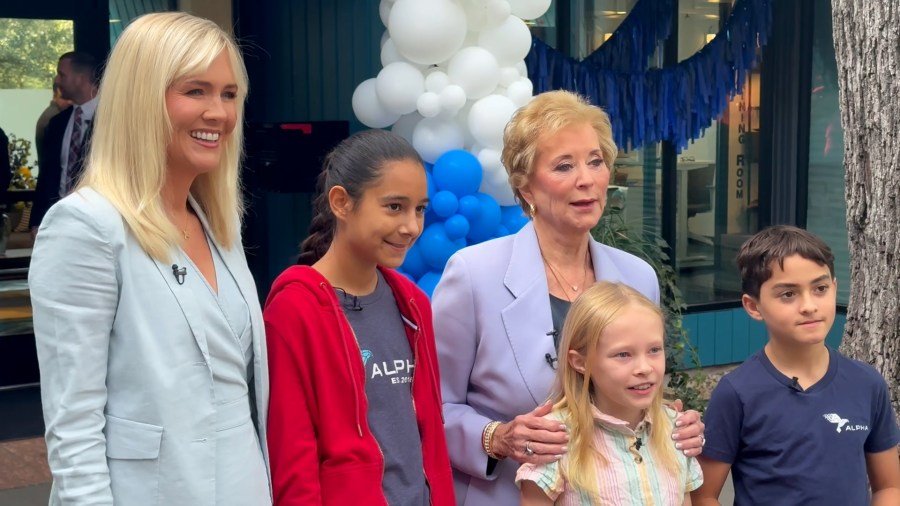AI Research
NUS and Google team up on AI research centre

The National University of Singapore (NUS) and Google have teamed up to drive applied artificial intelligence (AI) research and train a new generation of AI practitioners in the city-state through a new research and innovation centre.
The centre will serve as the core of the partnership, providing the resources and technology to pursue experimental and applied AI projects. For example, it will offer a rapid prototyping sandbox, a controlled cloud-based environment powered by Google Cloud’s tensor processing units. This will enable researchers to experiment, test and validate AI applications before deploying them in the real-world.
For a start, the researchers will focus on three key areas. The first, AI in education, will tap Google Cloud’s Vertex AI platform to develop advanced tools for adult education, creating adaptive learning pathways and course-specific AI companions to support Singapore’s efforts to promote lifelong learning.
A second major project will be the development of a law-specific large language model (LLM). Led by the NUS law faculty, NUS AI Institute and NUS Computing, the domain-specific model will be trained on local statutory interpretation and case precedents to overcome the limitations of generic LLMs in legal contexts.
This is expected to culminate in the development of an AI assistant supporting legal research, with the potential to improve productivity and access to contextually relevant legal information across law firms, the judiciary and public legal education.
The third focus, AI in public health, aims to drive population-level health outcomes by integrating foundational models with diverse data from healthcare, social services and environmental systems. This will support national preventive care programmes like Healthier SG and promote cognitive health and active ageing.
Serene Sia, country director for Singapore and Malaysia at Google Cloud, said: “By combining NUS’s world-class multidisciplinary research capabilities with Google’s AI research and AI-optimised cloud infrastructure, this joint centre is poised to steer safe and responsible AI development and accelerate scientific progress that transforms public health, learning experiences and other vital fields”.
Google is also looking to establish an AI-focused talent development programme at NUS, offering training and certification pathways in Google Cloud AI platforms for students and researchers. In addition, it plans to support a professorship in AI at the university to foster faculty leadership and strengthen the links between academia and industry in a bid to build a sustainable pipeline of AI talent in Singapore.
The latest collaboration between Google and NUS builds on existing initiatives between by the two organisations. These include an on-campus Google Developer Group to equip students with advanced software skills and Google Cloud’s role as an industry partner of the NUS AI Institute.
The partners have also worked together on grooming talent to tackle biomedical challenges with AI, producing the world’s first AI-powered legal journal podcast using Google’s NotebookLM, and recognising exceptional work in computer science through a Google PhD fellowship programme.
“Google has been a valued long-term partner of NUS, and we are excited to deepen this strategic relationship,” said Liu Bin, NUS deputy president for research and technology. “We are confident that our joint efforts with Google will nurture the next generation of AI scientists, engineers, and innovators equipped to tackle real-world challenges.”
AI Research
Switzerland launches open-source AI model Apertus developed by top research institutes

Switzerland has unveiled Apertus, an open-source large language model created through collaboration between the Swiss Federal Institute of Technology in Lausanne (EPFL), the Swiss Federal Institute of Technology in Zurich (ETH Zurich), and the Swiss…
AI Research
McMahon, Morath visit Austin school using artificial intelligence

AUSTIN (Nexstar) — U.S. Secretary of Education Linda McMahon toured an Austin private school on Tuesday, which claims it helps students “Learn 2x in 2 Hours.”
Alpha School Austin
Alpha School Austin is part of an upstart network of Alpha Schools across the country, focused on using Artificial Intelligence (AI) to help students progress through their coursework faster.
“Fundamentally, we believe that kids are limitless,” co-founder MacKenzie Price said. “When kids receive personalized learning that goes at their pace and level, their learning is able to go exponentially faster than in a traditional classroom.”
Instead of ‘teachers,’ students at Alpha School Austin are supervised by ‘guides,’ who help lead them through their abbreviated coursework. During the course of McMahon’s tour, students were completing rapid-fire math problems, designing a mini gold course and cooking.
“[Teaching two hours a day] begs the question, ‘what do you do with the rest of the school day?’” Price said. “We want our students to learn life skills, the skills that are going to help them be successful when they’re out in the real world.”
Despite having one-third of the classroom instruction, Alpha said their students are showing high levels of student achievement.
“We provide NWEA MAP (Northwest Evaluation Association Measures of Academic Progress) testing assessments three times a year in order to measure our students’ progress,” Price said. “Our classes are ranged in the top 1% in all subjects, all grade levels, with the exception of fifth grade math—which was 93rd percentile.”
The AI part of learning only accounts for about 10% of a student’s success, Price admits. It also isn’t for everyone, with Price saying it works for about 80-90% of students.
“Sometimes we see families who prefer a classical education model, or we see students who maybe want a more traditional experience,” Price said. “But it’s very rare.”
Head of U.S. Education and Head of Texas Education visit
After the tour, McMahon and Texas Education Agency Commissioner Mike Morath attended a roundtable featuring Price and several other Alpha school stakeholders. They heard from current parents, students, ‘guides’ and an alumna.
“I was very impressed,” McMahon said after the visit. “It’s just incredibly inspirational to see how quickly they can learn.”
McMahon and Morath are the heads of public education at the federal and state level, respectively. However, they hope to draw inspiration from the $40,000-a-year private school.
“What I’m doing right now is going around the country to see best practices,” McMahon said. “What I would like to do is to develop tool kits to leave behind with schools or with states and say ‘these are some best practices I think that I’ve come in contact with around the country. Not that I would write them—but there would be people knowledgeable to write them so they could be utilized and say ‘this is not a mandate. You don’t have to do this. This is where it’s worked.”
“If you look at the Texas Constitution, it calls for a general diffusion of knowledge,” Morath said. “Our goal is to make sure that children have access to great schools regardless of how who runs it, regardless of the label on the outside of the building. And so there are lessons to be learned in a school like Alpha that we’re visiting today. There are lessons to be learned from traditional public schools. If you look across the spectrum of the 9,000 public schools that run in Texas, you see tremendous diversity of educational models, of curricular design, of the way that teachers are supported and provide support to students we have to learn these lessons. How else do we improve the quality of education for our young people?”
Of course, not everyone can afford a school as expensive as Alpha. Even with the full amount provided for families through Texas’s incoming Education Savings Accounts would only cover 1/4th of the annual tuition cost. However, Alpha School officials argue the model can be implemented in other schools at a low cost.
“I could do this model of education in a tent as long as I had internet,” Price said. “It’s not about the building. It’s about what happens inside the building. That’s the thing that matters. I think it’s time for us all to hold ourselves accountable for delivering better to these kids and I think using artificial intelligence is what enables us to raise human intelligence.”
Copyright 2025 Nexstar Media, Inc. All rights reserved. This material may not be published, broadcast, rewritten, or redistributed.
For the latest news, weather, sports, and streaming video, head to KXAN Austin.
AI Research
Oxford and EIT Secure £118 Million for AI-Driven Vaccine Development Research – geneonline.com
-

 Business2 weeks ago
Business2 weeks agoThe Guardian view on Trump and the Fed: independence is no substitute for accountability | Editorial
-
Tools & Platforms4 weeks ago
Building Trust in Military AI Starts with Opening the Black Box – War on the Rocks
-

 Ethics & Policy1 month ago
Ethics & Policy1 month agoSDAIA Supports Saudi Arabia’s Leadership in Shaping Global AI Ethics, Policy, and Research – وكالة الأنباء السعودية
-

 Events & Conferences4 months ago
Events & Conferences4 months agoJourney to 1000 models: Scaling Instagram’s recommendation system
-

 Jobs & Careers2 months ago
Jobs & Careers2 months agoMumbai-based Perplexity Alternative Has 60k+ Users Without Funding
-

 Podcasts & Talks2 months ago
Podcasts & Talks2 months agoHappy 4th of July! 🎆 Made with Veo 3 in Gemini
-

 Education2 months ago
Education2 months agoMacron says UK and France have duty to tackle illegal migration ‘with humanity, solidarity and firmness’ – UK politics live | Politics
-

 Education2 months ago
Education2 months agoVEX Robotics launches AI-powered classroom robotics system
-

 Funding & Business2 months ago
Funding & Business2 months agoKayak and Expedia race to build AI travel agents that turn social posts into itineraries
-

 Podcasts & Talks2 months ago
Podcasts & Talks2 months agoOpenAI 🤝 @teamganassi

